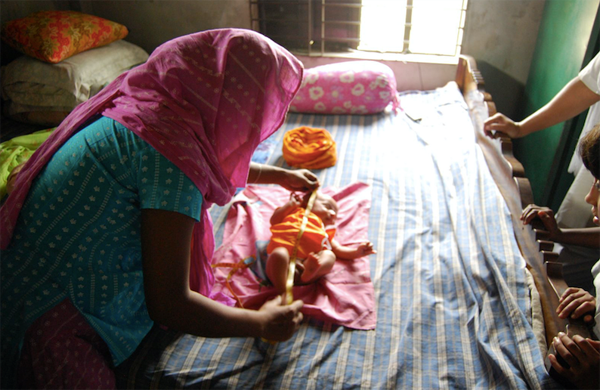SickKids researchers lead first study on maternal, newborn and child health in the Islamic World
Summary:
Muslim-majority countries have higher maternal, stillbirth, newborn and child mortality rates compared to the global average and compared to non-Muslim-majority countries, highlighting the impact of conflict and political instability on health outcomes for women and children.

Muslim-majority countries have higher maternal, stillbirth, newborn and child mortality rates compared to the global average and compared to non-Muslim-majority countries, highlighting the impact of conflict and political instability on health outcomes for women and children.
The study from the Centre for Global Child Health at The Hospital for Sick Children (SickKids) and published on January 30, 2018 in The Lancet, shows there is no indication that religion affects health outcomes. Instead, the researchers’ findings point to issues such as conflict, migration, political instability and government effectiveness, as key drivers of differences in maternal and child mortality.
Evidence from around the world also shows that higher literacy and empowerment of women positively impact on maternal and child health. While several Muslim-majority countries have made progress on indicators of empowerment and access to sexual and reproductive healthcare, the authors say greater efforts are now needed.
Every year, worldwide, an estimated 303,000 mothers and 5.9 million children younger than five years die from largely preventable causes. More than 95 per cent of these deaths occur in 75 countries of the world (known as ‘Countdown countries’), predominantly in South Asia, the Middle East and Africa.
“There are several success stories among many Muslim-majority countries, especially for reductions in child mortality in Niger, Maldives, Morocco, Azerbaijan, Senegal, Bangladesh and Egypt. Our analysis highlights that governance and structural factors, such as conflict and political instability, rather than religion, are among the key drivers behind the higher rates of maternal and child mortality in Muslim-majority countries,” says lead author Dr. Zulfiqar A. Bhutta and leader at both the SickKids Centre for Global Child Health and Aga Khan University.
“At its core, the fundamental principles of the Islamic faith include the promotion of social justice and individual flourishing through personal hygiene, nutrition, abstinence from harmful substance use, and the fostering of healthy environments,” adds Dr. Bhutta. “It is in this context that our findings of significantly lower rates of coverage of some essential services such as sanitation and childhood immunizations in Muslim-majority countries are a call for action to address these forthwith.”
“Poor governance, lack of accountable and democratic governments as well as insecurity, conflict and population displacement emerge as key determinants driving health disparities. Unequal societies are also fertile grounds for the growth of rebellion and militancy, especially in young people. Efforts to improve the health of almost two billion Muslims worldwide, and reduce health inequalities, will prove vital to achieving the Sustainable Development Goals, including peace building over the next 15 years,” adds Dr. Bhutta.
Analyzing how these contextual factors affect mortality rates within Muslim-majority countries, the researchers found that mortality of children under five years of age increased with higher numbers of refugees, and decreased with better political stability or absence of terrorism, greater political rights or government effectiveness, improvements in national income per capita, higher total adult literacy, higher female adult literacy and greater female to male enrolment in secondary school.
Among the Countdown countries, the best performing Muslim-majority countries were Azerbaijan, Bangladesh, Egypt, Indonesia, Kyrgyzstan, Morocco, Niger and Senegal, which had higher coverage of family planning interventions and newborn or child vaccinations, and generally performed better on many of the contextual determinants when compared to other Muslim-majority countries.
“Evidence from around the world shows us that insufficient empowerment and lack of social support for women limits their accessibility to basic healthcare, including family planning, and adversely impacts health, nutrition and well-being of the entire family. As contributors of female empowerment, the low levels of female literacy, high fertility rate, and early marriage of young girls are identified as key problem areas in this study,” said Nadia Akseer, first author of the report, Biostatistician at the SickKids Centre for Global Child Health and PhD Candidate at the University of Toronto.
Writing in a linked Comment, Amina Mohammed, Deputy Secretary-General, United Nations, says: “Greater investments in reproductive, maternal, newborn, child, and adolescent health are (also) some of our greatest tools in the face of rising levels of conflict and humanitarian crisis, which disproportionately affect Muslim-majority countries. We must prioritise the potential of women and adolescents as agents of peace through greater investments across health, education, and economic sectors.”
View the full study.
View the accompanying comment.
The first comprehensive report of Countdown to 2030 tracking global progress toward the Sustainable Development Goal targets on universal coverage for reproductive, maternal, newborn, child, and adolescent health and nutrition was also published on January 30, 2018, in The Lancet.

